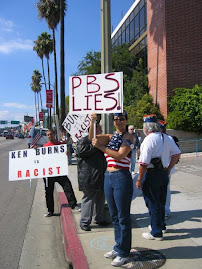Sunday, September 30, 2012
Eulogy for an Activist
Ventura County recently lost a person who provided a media voice to the Latino community since the 1960s. He was Javier R. Santana — journalist, civic activist, mentor and, as one of his longtime friends characterized him, a "true revolutionary" for the cause of the people.
When Oxnard High School student Nelly Medrano called his Santa Paula KPSA radio show in 1964 expressing interest in a career in broadcasting, Santana offered to assist her. As her mentor, he taught her public communications and helped her get accepted to UCLA.
In the tradition of legendary broadcast journalist Edward R. Murrow, Santana believed that an informed citizenry led to the creation of a better future. Therefore, at a time when Latinos were virtually nonexistent on college campuses, Santana championed higher education opportunities on his radio show so the next generation of Latinos could tackle issues of the day.
He also supported young Chicano movement activists who charged the Oxnard Police with harassment and the brutalization of La Colonia barrio residents.
In 1968, when sagacious Brown Berets appealed to the City Council to redress their grievances — they demanded a Police Department investigation by the state attorney general and the creation of a community review board — Santana recognized that this cadre of young men and women was the leadership of the future and urged the Ventura County Community Service Organization to support them.
Santana was prescient as many Brown Berets and other students he mentored and supported graduated from college on their way to becoming pillars of the community as social workers, educators, peace officers, elected officials and entrepreneurs.
As a radio commentator at KOXR "La Mexicana," from 1965 to 1993, Santana hosted a live program titled, "El Pueblo Opina (The People's Opinion)." It was on this evening show that Spanish-speaking community members discussed issues of school segregation, César Chávez and the United Farm Workers union, the county's labor history, politics, immigration, poverty, public health and discrimination.
As the Latino community was, and continues to be, diverse related to time of residency, class status and education, parents, guests and callers engaged in debates, often heated, as Santana moderated his radio show.
In one instance, Santana helped United Farm Workers organizers convince the KOXR ownership to provide airtime to create a program titled "La Hora del Campesino (The Farmworker Hour)." The show helped the UFW organize for a strawberry strike in 1974.
During this labor protest, the Sheriff's Department flew a helicopter closely above a UFW picket line in El Rio. When the protesters responded in their defense they were arrested. A public outcry combined with the coverage by Chicano journalist Frank Del Olmo of the Los Angeles Times, support from county Supervisor John Flynn and Santana's actions in and out of the radio booth, influenced the sheriff's department to cease such acts.
This was the type of news English-language media generally did not cover. And if they did report such stories, it was not from the point of view of the Spanish-speaking community.
Santana also understood the importance of culturally affirming events to inspire positive change. He partnered with restaurateurs such as the Casa Tropical to feature an amateur hour talent contest that he emceed. Winners went on to perform live on his radio program.
One contestant was Alicia Lopez Juarez, who went on to produce 21 albums, star in nine movies and, on top of performing for Latin American presidents, married the legendary mariachi singer-songwriter José Alfredo Jiménez.
Santana joined the movement for greater minority representation in an unsuccessful bid for a seat on the Oxnard City Council in 1974. He did not win, but three years later the council appointed him to the Community Relations Commission. As a candidate, commissioner and radio personality, Santana made sure that the interests of the Latino community were heard.
During the 1990s, Santana continued to give voice to the underserved on the bilingual television program "Santana En Vivo/Santana Live." The show aired throughout Southern California and discussed topics he had covered since 1965 in "El Pueblo Opina."
As he did from the start of his broadcast journalist career, Santana promised callers and guests the opportunity to voice their perspectives, irrespective of their language fluency or political ideology.
He leaves a legacy that many who knew and heard of him will seek to continue.
Javier Santana, with his passionate and golden voice of hope and defender of justice, will forever remain "The Voice for the Latino Community."
Frank P. Barajas
Jess Gutierrez
Image provided by Jess Gutierrez
This essay was published by Amigos805 and the Ventura County STAR.
Subscribe to:
Comments (Atom)


